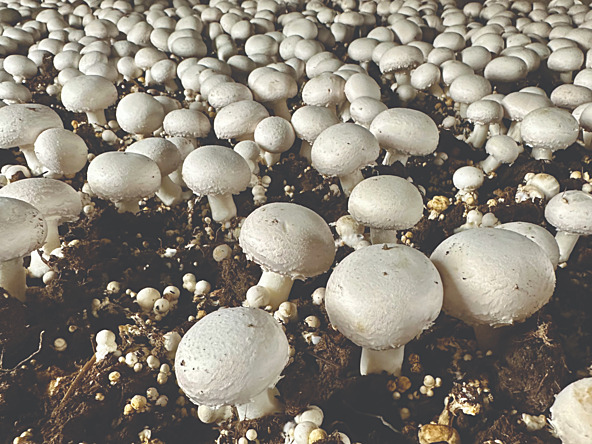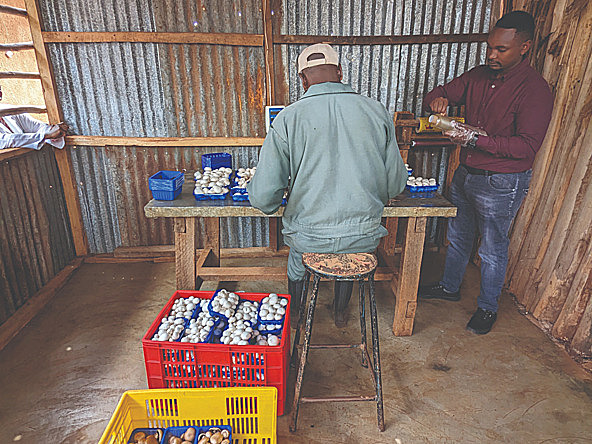A spore for success: My life researching mushrooms

I’m on a mushroom tour, researching myco-culture to explore how the ‘shroom boom’ is impacting consumer behaviour. As fungi become mainstream, the industry is still defining its norms. There are tensions as mainstream media publishes misleading information in catchy headlines; charlatans spew ‘wellness’ advice on Instagram; and, currently, there is little research for those wanting to look beyond the blogs but without the capacity to access digestible scientific studies.
After more than 40 ethnographies, I’m on the most challenging study of my career. Immersing myself in the mycological scenes of Southern and East Africa, Southeast Asia and the UK has revealed how fungi can become an ally, colleague and teacher.
Insights rely on valid and accurate data, often supplied through the goodwill and cooperation of participants. Given the importance of intersectionality and cultural appropriateness in global research, mushrooms have shaped my study design, considerations and methodology.
Mycophiles often speak of fungi as ‘engaging us in conversation’. We look to fungi as a silent partner, not as an extractive resource to be used. For many mycophiles, mushrooms are our friends. As such, the roles of researcher and participant shift: rather than just an observer, I’m a collaborator and even a student. Participants are invited as partners in designing their ethnographies and as contributors to the reporting.
In Kenya, the objective was to understand the market’s emotional relationship with button mushrooms, being a potential source of food security and economic equity. An elder female agribusiness maven worked with our fixer and mutual colleague to design her own ethnography. Before the interview, we connected over a farm tour and mushroom-themed lunch. We were well fed and, as is customary for this group, had blessed the meal by thanking the farmers for our food.
This simple act of building trust enabled her to divulge a deeply personal insight that fundamentally changed my understanding of the local mushroom culture. Shattering my initial perceptions of a mutually beneficial, emotional human-fungal relationship (perhaps biased by learnings from the UK and South Africa), she revealed a bitterness rooted in the challenges that farmers face. This insight is helping some Kenyan mushroom entrepreneurs to re-evaluate how brands communicate with a mushroom market looking for pragmatism over emotion.
Similarly, in Uganda, it was imperative to demonstrate cultural awareness and sensitivity. In a refugee settlement populated largely by people from the Democratic Republic of Congo, the sight of Western visitors may not be an everyday occurrence. While preparing for field research exploring how refugee-led organisations work with mushrooms to build resilience and self-sufficiency, I invited our hosts to guide our behaviour and research discussion. This ensured the appropriateness of the topic guide to cover sensitive issues.
Global research encompasses a wide range of perspectives – even more so when studying mushrooms. Mushroom folk work at the intersections of ancient and modern practices, spanning food, health, materials, policy, environment and conservation.
My sample are myco-experts, mycophiles, mycopreneurs and mushroom enthusiasts who exist as a decentralised global network. Like mycelium, the ‘wood wide web’ that allows fungi to communicate and share resources without a central control point, there’s no main mushroom governing body.

Mushroom circles understandably become more open when one displays a shared passion. To be trusted as an investigator, I must speak the lingo, know my death caps from my panther caps, and remain humbly a student.
I’ve accessed people beyond recruiter databases. In South Africa, where psilocybin (a hallucinogenic compound found in some fungi) is classified as illegal, interviewees referred through ‘mycelial’ connections proved essential to investigating flourishing underground psychedelic enterprises.
Building rapport ensures committed participation. If people feel the research is not relevant to their context, they may be less likely to take part, resulting in incomplete data or drop-outs.
In Vietnam, I had no budget for an interpreter, as the study is limited by self-funding. Impressively, participants proactively learned English mycological jargon for the research. This is testament to the investment and engagement of the mycological community when rapport is built. In Kenya, partnering with mycopreneurs gave me a week in-field and a network of mycologists (and its WhatsApp group), allowing me time to unpack the complexity of mushrooms’ multifaceted and intersectional impact.
Building trust and using culturally specific methods allows for deeper insights than a generic approach. As an analyst (and humble myco-enthusiast), this has become really important while addressing the study’s most significant challenge: navigating polarisation, misinformation and harmful ideas.
In ethical research, including all perspectives – even those you don’t like or agree with – is as important as removing personal bias. For example, tackling a controversial and polarising narrative around mushroom foragers being dubbed ‘eco-criminals’ in the UK and South Africa presented challenges. I could not have achieved objective results or a deeper understanding of the topic without foragers trusting me with their honest opinions.
These partnerships also mean I’m able to release occasional hot-topic myco-reports, with diverse perspectives on tough topics. Here, participants become consultants and collaborators in the reporting, ensuring culturally appropriate outputs.
What set out as an exploration into myco-culture has become a bank of insights on mycopreneurship, brand communications, audience engagement, informed consumer choices, and how to do solo global research into this growing niche.
Looking ahead, true collaboration with participants increases my chances of being welcomed back for future studies in the regions I have visited. Research that respects local nuances can steer effective decision-making in global product development or brand and communications strategy.
Involving participants as partners ensures cultural appropriateness – a valuable lesson for market researchers in any field, to avoid unintended harm, offence or misrepresentation. Insights from mushrooms can inspire market researchers to rethink their approach, emphasising mutual respect, collaboration and cultural sensitivity in their methodologies.
● Jess Jorgensen is a strategic insights consultant focusing on mushroom culture, who runs the Running with Mushrooms blog and podcast.
This article was first published in Impact magazine’s April 2024 issue.

We hope you enjoyed this article.
Research Live is published by MRS.
The Market Research Society (MRS) exists to promote and protect the research sector, showcasing how research delivers impact for businesses and government.
Members of MRS enjoy many benefits including tailoured policy guidance, discounts on training and conferences, and access to member-only content.
For example, there's an archive of winning case studies from over a decade of MRS Awards.
Find out more about the benefits of joining MRS here.











0 Comments